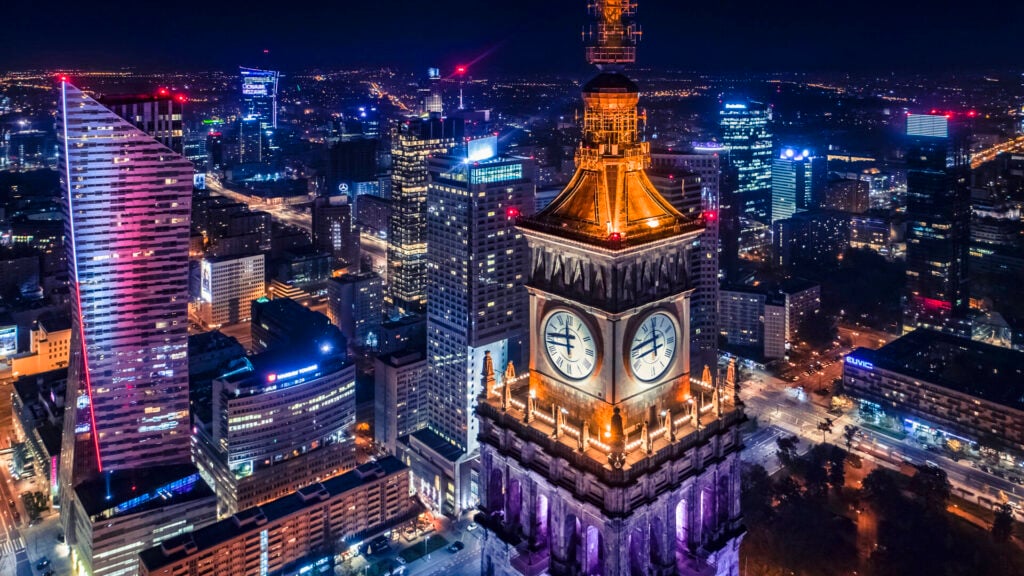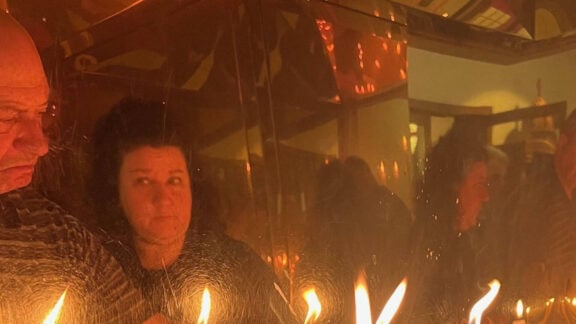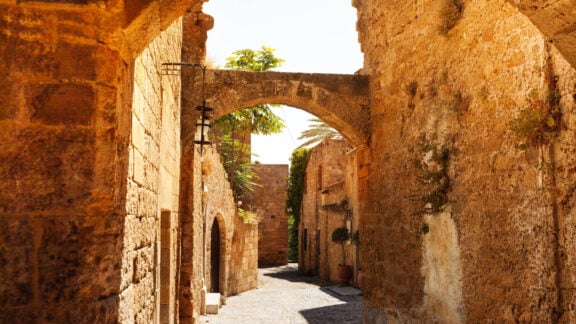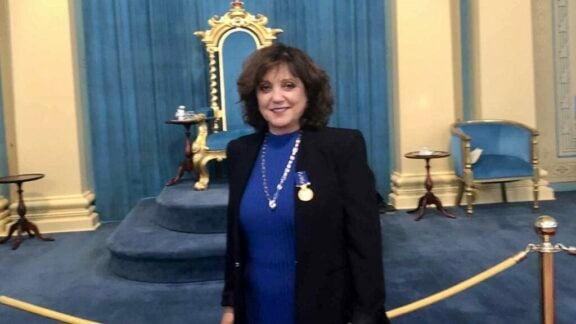Years ago, I became friends with Dorota, a Pole who had lived in New York for over a decade before returning to her native Poland. We kept in touch, and at the end of any communication, she would always invite me to visit her. Having last been to Poland in 2008, I finally took her up on the invitation. As a self-described slacker chronicler of the Diaspora, it was also an opportunity to learn more about Poland’s Greeks.
Greeks have a nose for a good trade route
Greeks have carved out mercantile routes and established settlements across the world for thousands of years. Central and Eastern Europe was a hub, with the Silk Road taking traders to Xi’an. Poland, a significant Catholic medieval and later modern power with seaports, was—and still is—a gateway between East and West. Many Greeks settled there.
Take Konstantinos Korniaktos, for example. Born in Chania, Crete, he made his fortune in Constantinople, then settled in Poland in the late 16th century, for love and money. He owned entire villages and established a Greek Orthodox brotherhood. If that wasn’t enough, he built the Korniakt Palace, now located in Lviv, modern-day Ukraine.
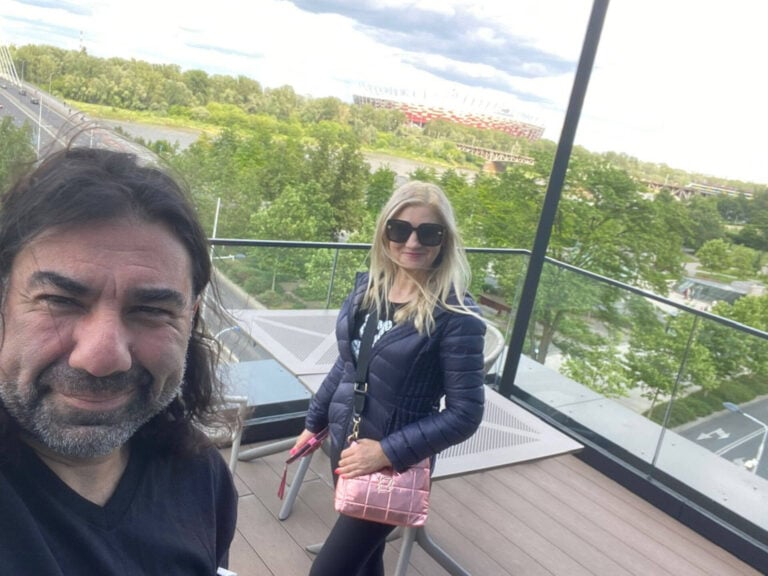
In the 20th century, many Greeks fled to the Eastern Bloc after the Greek Civil War. After 1949, Poland took in around 13,000 political refugees—those aligned with the communist-led forces. These Greeks were forced to flee when the right-wing faction won the bloody fratricidal war of 1945–1949.
Most settled in Zgorzelec, where even a factory was set aside for them as part of the ‘new proletariat.’ Poland’s Soviet-aligned communist government provided them with work opportunities across the industrial and agricultural sectors. In 1961, many were exiled again—this time to Bulgaria—due to their divergent views on communism.
By the 1970s, Eleni Tzoka, a Greek Pole, rose to become one of Poland’s biggest pop stars, often known simply as Eleni. Thousands of refugees returned to Greece after the collapse of communism in the East during the 1990s. A small Greek community remained. They built the Church of Constantine and Helen, provided Greek language classes, and even established the annual International Greek Song Festival.
Dorota loves history and public transport; I love bikes and Greek food.
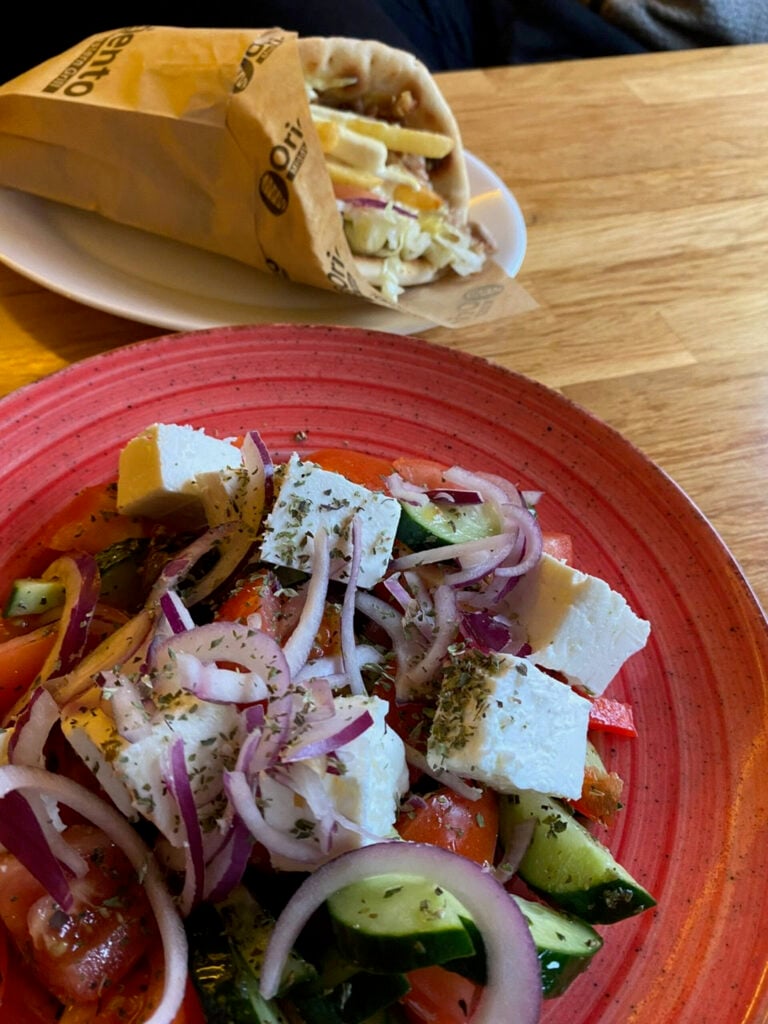
We compromised by walking, often for hours. Wandering around the Old Town, the Vistula River, and the stadium area was a profound experience—the beauty was dizzying.
Warsaw is full of Greek eateries that have become Hellenic landmarks. Dorota and I stumbled upon Pita Bros, located in a repurposed industrial estate near the river. There, we met Mersini, the chef and manager. She’s from Lesvos but stayed in Warsaw for love—her Polish partner. As I said, like me, she’s from Lesvos, where the finest Hellenes come from.
Another love story is that of chef George Chrysis from Kalispera, a taverna two kilometres from the Old Town. With its Arcadian outdoor setting, friendliness, and remarkable food, Kalispera stands out. George is also a musician.
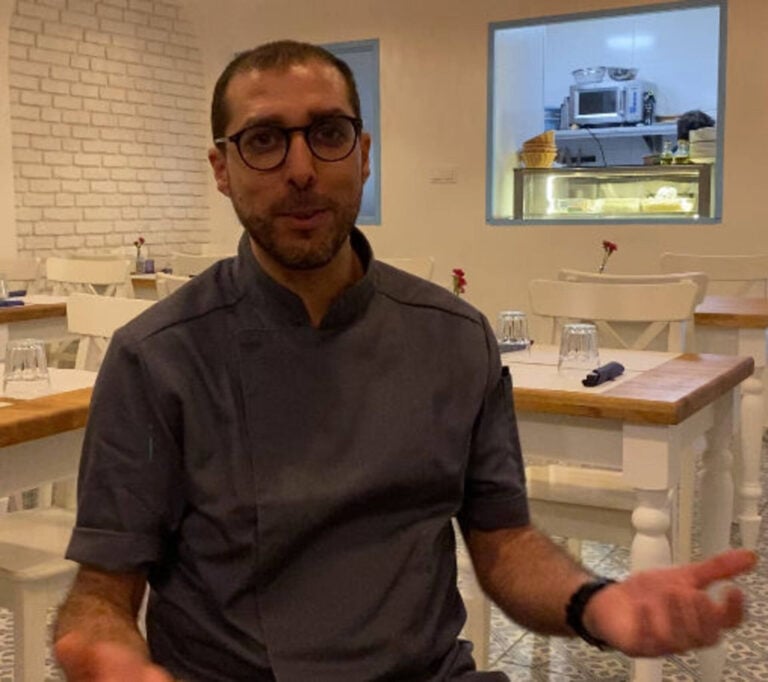
His grandmother had “a profound impact upon him, teaching him the dishes of her generation,” he says. “I owe my cooking style mostly to my grandmother. She was someone I can never forget.”
George, fluent in Polish, arrived in 2014. His uncle Kostas encouraged him to work at a hotel, where George met his future wife, then a patron.
At Meze in Śródmieście, we met chef Elias from Thessaloniki. He moved to Warsaw at the start of 2025. Meze is one of Warsaw’s busiest eateries.
Its owner, Teo Vafidis—who also owns the Pita Bros chain—is brimming with charisma, energy, and culinary experience. Instantly likeable, he also stewards the Greek Cuisine Festival, which started 20 years ago, and is active in Greek travel and tourism.
Walk Warsaw
After exploring rooftop gardens, Dorota and I visited the prestigious Uniwersytet Warszawski, the largest and one of the most prestigious universities in Poland, established in 1816. It is in the heart of Warsaw. Outside, it makes its weight known with a stele of Plato’s Phaedrus in Greek.
In it is a critique of the invention of writing, seen then, like social media is seen now, as weakening true memory by encouraging dependence on written records. The University of Warsaw makes clear that writing is no pharmakon, medicine, for mnemi, memory, as Plato suggested. Free and open discussion is central to the institution and the city.
“O most technical Theuth, one person indeed can produce the things of the art, but another can judge, what share of harm and benefit it has for those who will use it.
And now you, because of goodwill, have said the opposite of what is true about the letters (writing) —for this will bring forgetfulness into the souls of those who learn, through neglect of memory, since they will put trust in writing that is external, through foreign marks, not inwardly from themselves by recollection.
So then, you have provided not memory but a reminder (mnēmēs), a drug (pharmakon) for memory.”
True. Talking and walking are the lifeblood of good cities. I never tire of walking through them. The more we walked, the more we were drenched in the city’s history. And I, looking for hints of any Greek connections. Bang! There’s a café, Kosmos, on the river.
Warsaw has active Greek associations. George volunteers with Greeks in Warsaw / Ellines sti Varsovia, who help Greeks connect. It’s led by a team of sharp local Greeks, including history teacher Michail Symeonidis. For example, the HERMES Association of Greek Entrepreneurs hosts regular events. There is also the Nikos Beloyannis Union of Political Refugees from Greece (Związek Uchodźców Politycznych Z Grecji im. Nikosa Belojannisa) named after the Greek communist leader who finally ended up in Hungary but also graced Poland, after the Greek Civil War. They were significantly more active in the post-war period up until the collapse of communism in the 1990s.
The Greek Embassy runs a Greek language school, with 50 students. But, aside from Zgorzelec, there appears to be no other official Greek Orthodox church in Poland. Many Hellenes converted to Catholicism, which is both a faith and a political force in Poland.
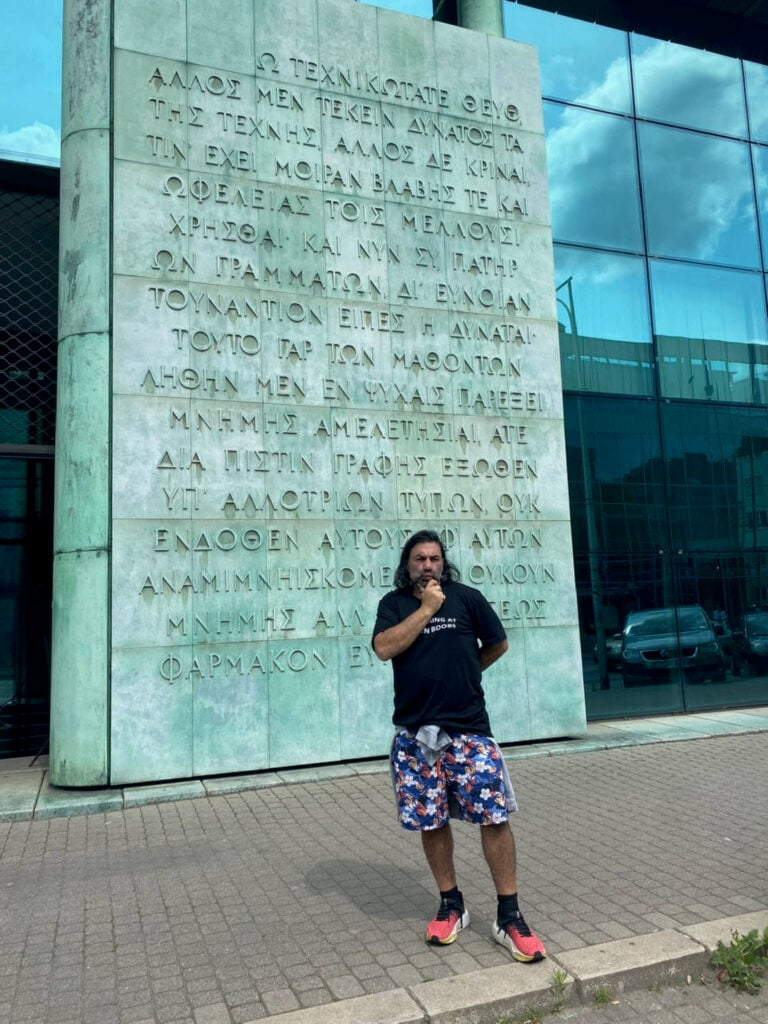
Another Greek-Australian in Poland
Dorota connected me with Leo Sklias, who was 12 when he and his family returned to Katerini in Makedonia. Love also brought Leo to Poland.
“I met my wife when she was on holiday in Katerini. For over a year, we kept in touch, and after we met again, we decided to move back to Poland in 2007.
“It wasn’t an easy decision, but as you know, it was a time in Greece when the crisis was coming, so it was a no-brainer to choose Poland then.”
The couple live in Jarosław with their 16-year-old daughter.
Leo points to the contrast between the more stoic Eastern European Poles and the expressive Mediterranean Greeks.
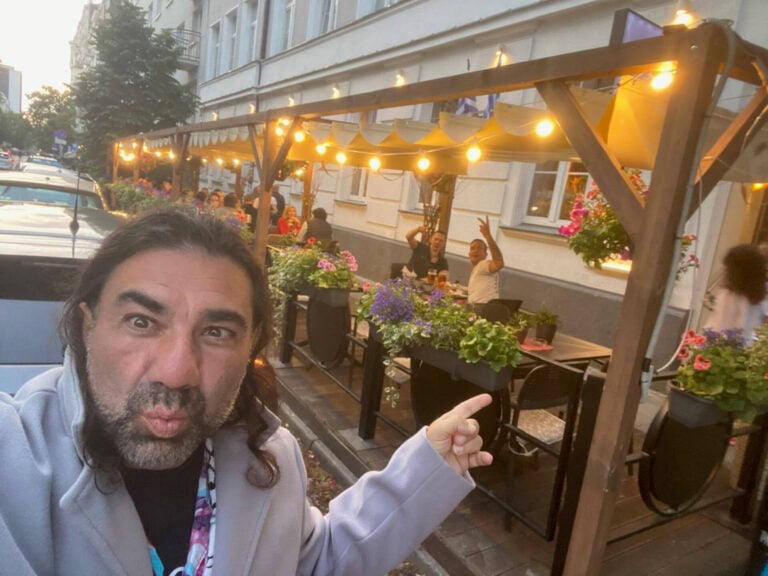
“We Greeks are more expressive and immediately social, with a long summer. Poles are more reserved, private, and take time to open up.
“This can feel cold or distant to someone used to Greek enthusiasms,” he says.
He also mentions the Polish winter, which “can last from October to May, with little sunlight and freezing temperatures.” This stands in sharp contrast, he adds, “to people used to Greece’s mild winters, sweaty summers, balmy springs, and a life lived outdoors.”
Leo keeps in touch with Greeks he has met across Poland.
Just keep walking
I love food, and to eat, you gotta burn it off. Walking with Dorota is a massive calorie burn. On one of our walks, Dorota said that the Old Town had been completely levelled by the Nazis.
Hitler told his commanders that the goal of war was to physically destroy the enemy—men, women, and children of Polish background were to be killed without pity. The campaign would be brutal and merciless. SS death squads (Einsatzgruppen) and police units were formed to eliminate anyone who might resist German rule.
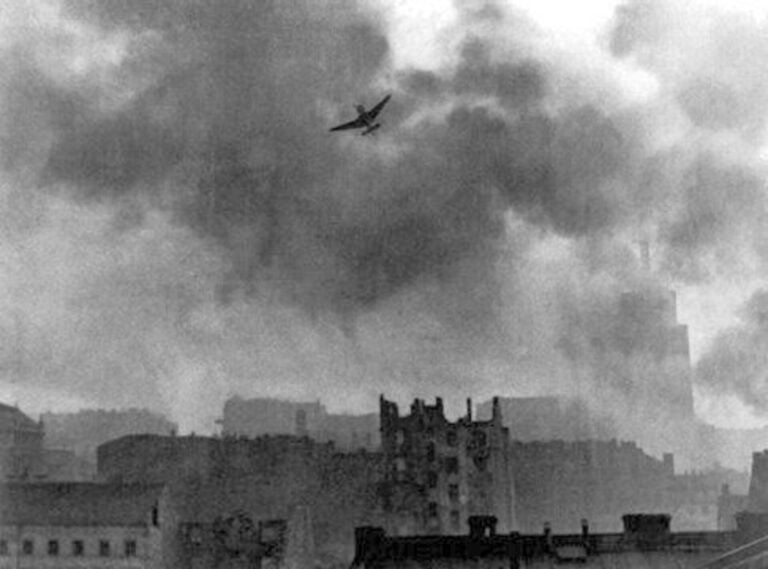
Lists were prepared targeting Poland’s intellectuals and leaders for execution. Cities like Warsaw were to be emptied of Jews, and Poles reduced to a population of forced labourers. Hitler’s plan for colonisation set in motion horrors that would lead to the creation of extermination camps—factories of industrial-scale murder. Along that carnival of horror, over six million Polish citizens perished during World War II.
However, that devastation remains as an archive and eternal memory – never again. The Old Town was rebuilt – the ghosts, spirits of those who fought and perished, walked shoulder-to-shoulder with us.
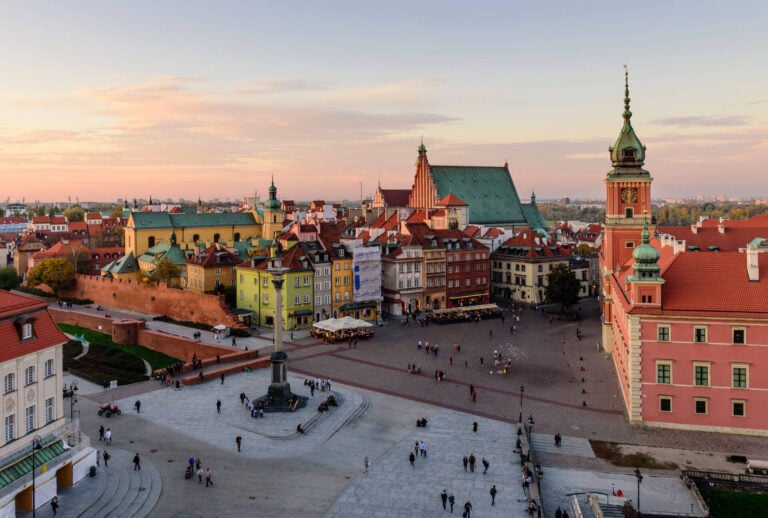
Poland has progressed significantly since my first visit in 2008. It is vibrant, exciting, and has grown, allowing Greeks, whether 400, 100, 40 years ago, or today, to flourish. I fell in love with Warsaw all over again—a city that remains a siren’s call for Greeks who fall in love.
